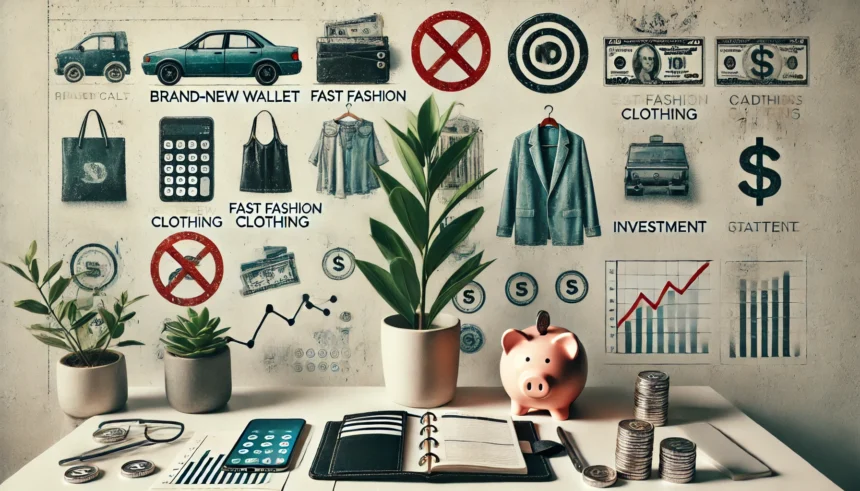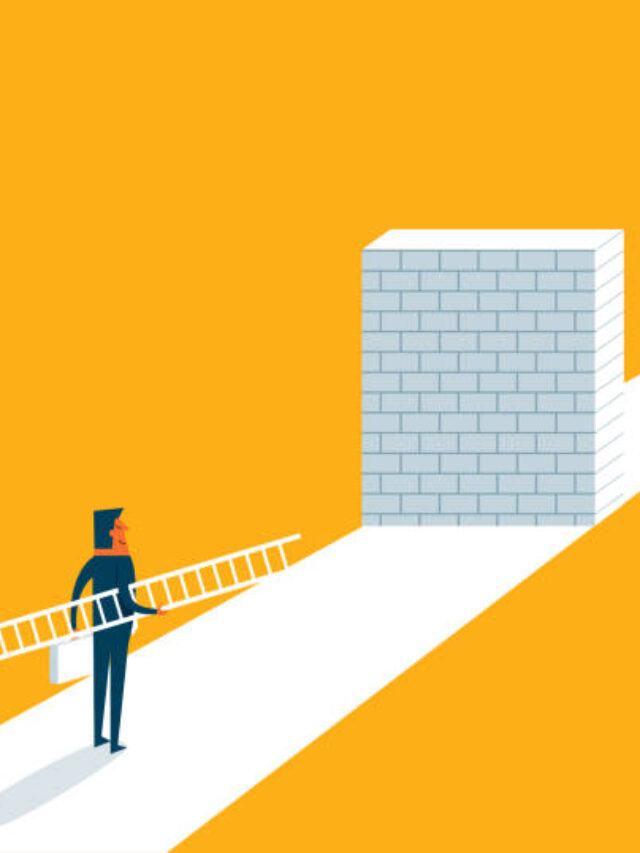Introduction :
When I made the decision to take control of my finances and build long-term wealth, I realized that many of my purchases weren’t serving me. Some of it was just impulse buys or habits I never questioned. Here are 7 things I stopped buying to Save Money, and how it helped me save money and improve my financial health:
1. Books
While I love reading, buying books frequently adds up. Instead, I now borrow from the library or swap books with friends. This not only save money but also cuts down on clutter.
The library has become my best friend. Whether it’s borrowing physical books or e-books, I can read everything on my list without spending a dime. If I truly love a book after borrowing it, then I’ll consider buying it to add to my collection, but that’s become a much rarer occurrence.
I’ve also tried swapping books with friends, though in today’s digital world, it’s surprisingly hard to find friends who actually read! Luckily, I’ve managed to track down a few fellow bookworms at the local library. It’s a great way to get new recommendations and access titles without spending a dime—plus, it’s always fun to chat with someone who’s just as obsessed with stories as I am.
By cutting back on buying books impulsively, I’ve managed to save money and avoid the clutter of unread books piling up. Now, I focus on choosing books that truly add value to my life, instead of just filling up space on my shelf.
2. Brand new Car
Owning a car can be really expensive when you factor in maintenance, fuel, and insurance. I decided to sell mine and now I get around using public transport or rideshare services. This change has cut down my monthly expenses a lot.
New cars are often bought by people who have a business, retirees who have money saved up, or taxi drivers. But honestly, I don’t understand why people buy brand-new cars! As soon as you drive a new car off the lot, it starts losing its value. It’s like buying a brand-new phone and watching it lose value as soon as you take it out of the box.
Instead of falling into this trap, I’ve realized that cars that are just a few years old with low mileage are way cheaper and still look almost new. They also hold their value better, making them a smarter choice if you want that “new car” experience without the high price. My friend from schooling days Shiva working as CA , for example, bought a used car that was only three years old, saved thousands, and it still drives like a dream. Plus, he didn’t have to worry about the big hit of depreciation.

Related Stories from blowingbrainsz.com
- Manifestation Mastery : 5 Steps + 7 Signs You’re Already Aligned
- Revolutionizing Education: How AI is Shaping Personalized Learning by 2025
- Mastering Your Mindset Mastery: Strategies for Winning Mindset for Success in 2025
- 7 Things I Stopped Buying to Save Money and Build Wealth
- Unlocking Limitless Potential: The Ultimate Guide to Achieving Personal and Professional Success
3. The Latest Updates or updated Version
Whether it’s the latest tech gadget or fashion trend, constantly chasing after updates can drain your wallet. I’ve learned to be content with what I have and only upgrade when absolutely necessary.
I’ll never understand why people upgrade their smartphones after just 1 or 2 years. Most smartphones come with software support for at least 4 years, and the technology gap between 1-3 years isn’t nearly as wide as it is between 4-6 years. Upgrading too soon just feels like a waste of money and time.
And it’s not just about phones. I also stopped buying extended warranties or protection plans for most items. The trick? Just take good care of what you buy, and you likely won’t need them.
4. Items on Sale
Sales can be tempting, but buying things I don’t need just because they’re discounted isn’t saving money. I’ve trained myself to avoid impulse purchases, even during big sales.
Remember that phrase from high school? “Do you really need it, or is it something you just want? If it’s something you want, sit on it & think first.” That stuck with me, even though I’ve always felt like I totally suck at understanding economics! It’s about finding a balance between spending every penny and being a cheapskate.
The “on sale” thing is a trap I see so many folks fall into, and it always makes me shake my head. Just because something’s discounted doesn’t mean it’s a good deal if you didn’t need it in the first place. When I want something, I wait a few weeks to see if it’s still something I genuinely want and if it’s something I actually need in my everyday life. If it is, I’ll buy it—otherwise, I skip it. Avoiding impulse buys during sales has saved me a lot of money over time.
5. Things I Don’t Understand
Purchasing items I don’t fully understand—like overly complicated gadgets or investments—led to waste. I now take the time to research before spending, ensuring my money is going to something that adds value.
Online shopping has made it incredibly easy to buy things we don’t actually need. Scrolling through e-commerce sites on our phones, it’s tempting to grab cheap, unnecessary items just because they’re on sale or look appealing in the moment. I used to fall into this trap, buying random gadgets or trendy products without really thinking about their value or usefulness.
Now, I’ve made a simple but effective change—I removed e-commerce apps from my phone. When I really need something, I install the app, make my purchase, and then uninstall it as soon as the item arrives. This habit has been a huge money-saver and keeps me from making impulsive buys.
By taking the time to research and asking myself if something is truly necessary, I’ve been able to save money and avoid cluttering my life with things that don’t add real value.
6. Fast Fashion
Fast fashion is cheap, but it doesn’t last. I’ve stopped buying low-quality clothing that wears out quickly. Instead, I invest in a smaller, high-quality wardrobe that stands the test of time.
For years, I was caught up in the fast fashion cycle—buying cheap, trendy clothes from every brand you can think of. It seemed like a bargain at the time, but looking back, none of those clothes lasted. Either they went out of style, or they fell apart after just a few washes.
I used to spend money on clothes I’d wear a few times before tossing them aside, and it was a complete waste. Now, I’ve learned to focus on quality over quantity. Instead of buying into fast fashion, I invest in well-made, timeless pieces that last for years. Sure, they might cost more upfront, but in the long run, I save money by not constantly replacing items.
Plus, having fewer clothes makes life so much easier. I no longer waste time deciding what to wear, and my closet feels more organized. The shift from trendy, disposable clothing to investing in quality has helped me save money, reduce waste, and simplify
7. High-Maintenance Items
Whether its high-end electronics or luxury goods that require special care, I’ve cut down on buying things that are expensive to maintain. This shift has not only saved money upfront but also in long-term costs.

I used to spend too much time on high-maintenance choices, whether it was picking the right outfit or managing other unnecessary details. In India, I often wear a white shirt for traditional functions, but for a long time, I found myself confused about which color shirt to wear for other occasions. Now, I stick to just 2 or 3 colors. This not only simplifies my decisions but also saves me time, allowing me to focus more on my blogging and content creation.
As a blogger, managing my time efficiently is key. High-maintenance items—whether it’s owning gadgets that need constant upgrades or clothes that require special care—distract me from my work. By cutting out these unnecessary maintenance tasks, I’ve been able to dedicate more energy to writing and growing my blog.
I’ve realized it’s not just about saving money; it’s about valuing my time. Simplifying small decisions helps me avoid mental clutter and focus on what truly matters. While I don’t apply this to everything (like spending time with family or enjoying special moments), for areas that don’t add real value to my life, minimizing effort has made a big difference.
My Thoughts on Spending
Cutting out unnecessary purchases has transformed my relationship with money. Now, I prioritize long-term investments to Save Money and value experiences over things. Every dollar saved is a step closer to financial freedom.











“Your writing style is engaging and clear, love it!”
great post, very informative. I wonder why the other specialists of this sector do not notice this. You must continue your writing. I am sure, you’ve a great readers’ base already!